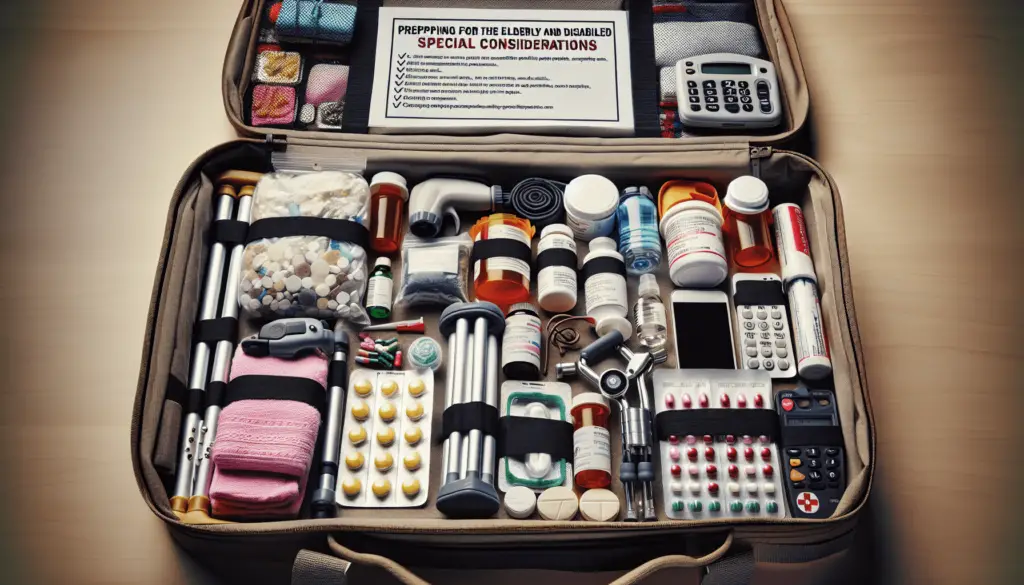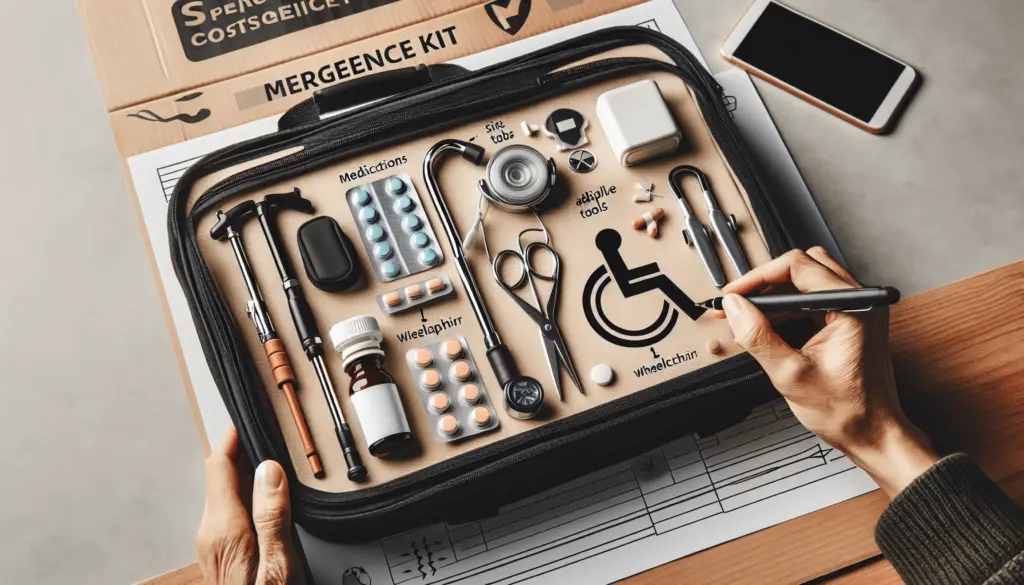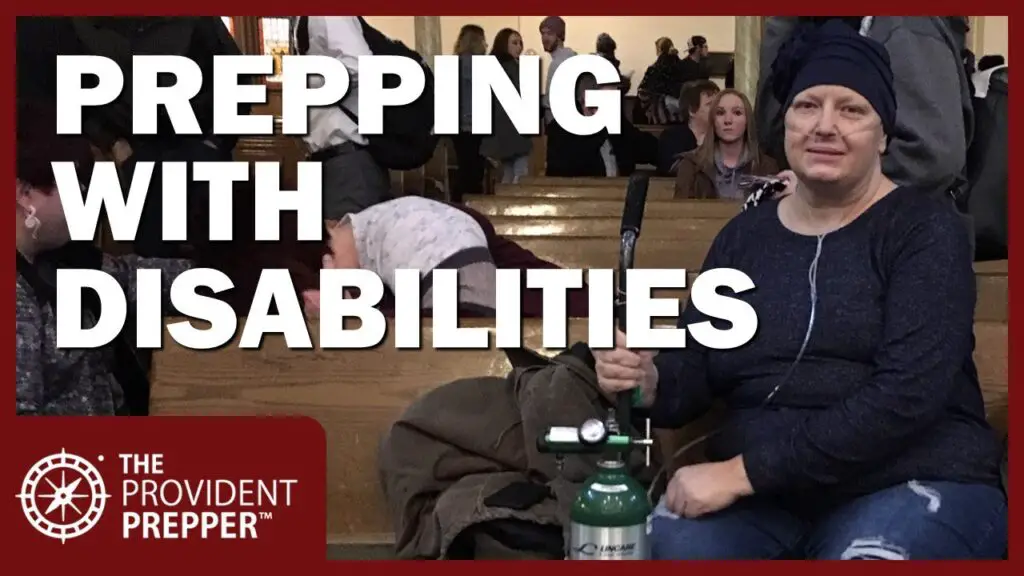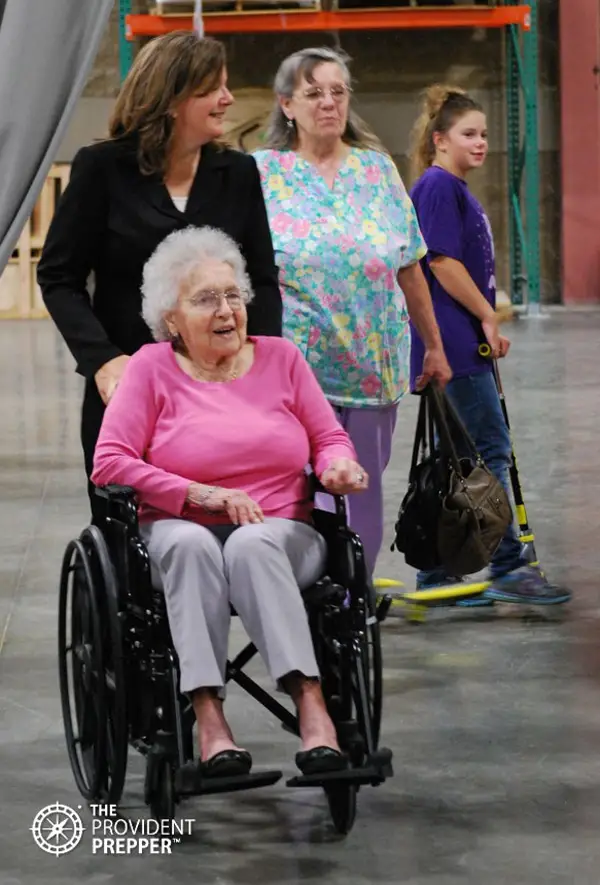Prepping For The Elderly And Disabled: Special Considerations
Are you prepared for an emergency situation if you or a loved one is elderly or disabled? It’s important to consider special needs and prepare accordingly. Read on to learn how to best prepare for the elderly and disabled in case of an emergency.
Special Considerations for the Elderly
When it comes to prepping for the elderly, there are some special considerations to keep in mind. The following are some key points to think about when preparing for emergency situations:
Mobility
One of the main concerns for elderly individuals during an emergency is mobility. Whether they use a wheelchair, walker, cane, or other assistive devices, it’s crucial to have a plan in place for how they will move from one place to another. You may need to consider options such as ramps, stairlifts, or other mobility aids to ensure their safety and well-being.
Medication Management
Many elderly individuals rely on medications to manage their health conditions. In an emergency, it’s vital to have a plan for how they will access and take their medications. Make sure to have a supply of medications on hand, as well as a list of medications and dosages that they take regularly. Consider investing in a pill organizer or a medication reminder system to help them stay on track with their medications.
Communication
Communication is key during an emergency, especially for elderly individuals who may have hearing or vision impairments. Make sure to have a plan in place for how they will communicate with emergency responders or family members. Consider using a communication device, such as a cell phone with large buttons or a medical alert system, to ensure that they can easily reach out for help when needed.
Emotional Support
In times of crisis, emotional support is crucial for elderly individuals. They may feel scared, confused, or overwhelmed by the situation, so it’s essential to provide them with comfort and reassurance. Make sure to check in on them regularly, listen to their concerns, and offer support and encouragement when needed. Consider involving a mental health professional or counselor if they are experiencing significant emotional distress.

Special Considerations for the Disabled
Prepping for individuals with disabilities requires specific considerations to ensure their safety and well-being during an emergency. Here are some key points to keep in mind when preparing for disabled individuals:
Accessibility
One of the most important considerations for disabled individuals is accessibility. Make sure that emergency shelters, evacuation routes, and other essential services are accessible to individuals with disabilities. Consider investing in ramps, accessible bathrooms, and other accommodations to ensure that they can access these services without difficulty.
Assistive Devices
Many disabled individuals rely on assistive devices to help them with daily tasks. In an emergency, it’s crucial to have a plan for how they will access and use these devices. Make sure to have a backup supply of batteries, chargers, or other essential accessories for their devices. Consider creating a list of assistive devices that they use regularly and keep this information readily available in case of an emergency.
Emotional Support
Individuals with disabilities may experience unique emotional challenges during an emergency. They may feel scared, frustrated, or overwhelmed by the situation, so it’s important to provide them with emotional support and reassurance. Listen to their concerns, offer comfort and encouragement, and involve a mental health professional or counselor if needed. Make sure that they feel safe and supported throughout the emergency situation.
Communication
Communication is crucial for individuals with disabilities during an emergency. Make sure to have a plan in place for how they will communicate with emergency responders, family members, or caregivers. Consider using communication devices such as text-to-speech apps, medical alert systems, or communication boards to ensure that they can easily communicate their needs and concerns during the emergency.

Emergency Preparedness Kit Checklist
To ensure that you are fully prepared for an emergency situation involving elderly or disabled individuals, consider putting together an emergency preparedness kit. Here’s a checklist of essential items to include in your kit:
| Item | Description |
|---|---|
| Medications | A supply of all necessary medications along with a list of medications and dosages |
| Medical Supplies | Bandages, gauze, antiseptic wipes, scissors, tweezers, gloves, thermometer, and other basic medical supplies |
| Assistive Devices | Wheelchair, walker, cane, hearing aids, communication devices, and other assistive devices |
| Personal Hygiene Items | Soap, hand sanitizer, toothbrush, toothpaste, sanitary pads, wipes, and other personal hygiene items |
| Non-perishable Food | Canned goods, granola bars, dried fruits, nuts, peanut butter, and other non-perishable food items |
| Water | At least one gallon of water per person per day for at least three days |
| Flashlight and Batteries | A flashlight with extra batteries or a hand-crank flashlight |
| First Aid Kit | A basic first aid kit with adhesive bandages, gauze pads, medical tape, antiseptic ointment, and other supplies |
| Emergency Contact Information | A list of emergency contacts, medical providers, caregivers, and other important phone numbers |
| Personal Documents | Copies of important documents such as identification, insurance cards, medical records, and other essential papers |
| Whistle | A whistle to attract attention in case of an emergency |
| Blankets or Sleeping Bags | Blankets, sleeping bags, or emergency blankets for warmth and comfort |
By assembling an emergency preparedness kit with these essential items, you can ensure that you are fully prepared to care for elderly or disabled individuals during an emergency situation. Make sure to regularly check and update your kit to ensure that all supplies are current and in good condition.

Conclusion
Prepping for the elderly and disabled requires specific considerations to ensure their safety, well-being, and comfort during an emergency situation. By focusing on mobility, medication management, communication, assistive devices, emotional support, and other key factors, you can better prepare yourself and your loved ones for any potential emergencies that may arise. Remember to create an emergency preparedness kit with essential items, have a communication plan in place, and regularly check and update your emergency supplies to stay prepared for any situation that may come your way. Stay informed, stay prepared, and stay safe.

